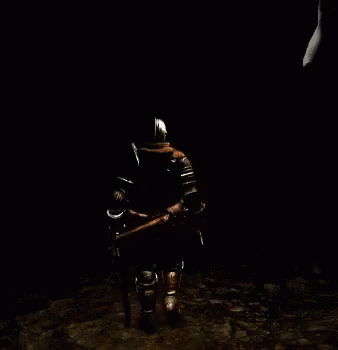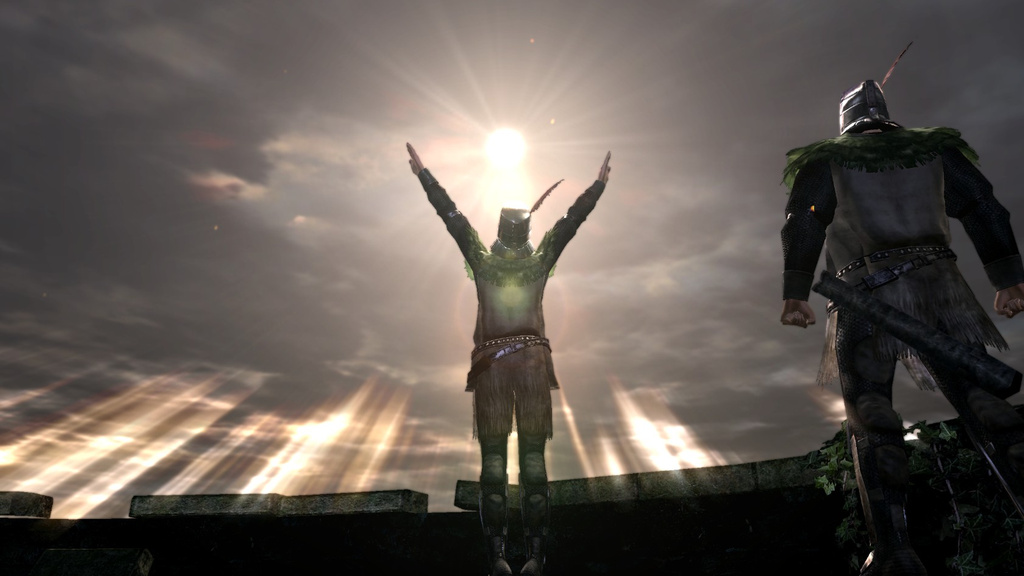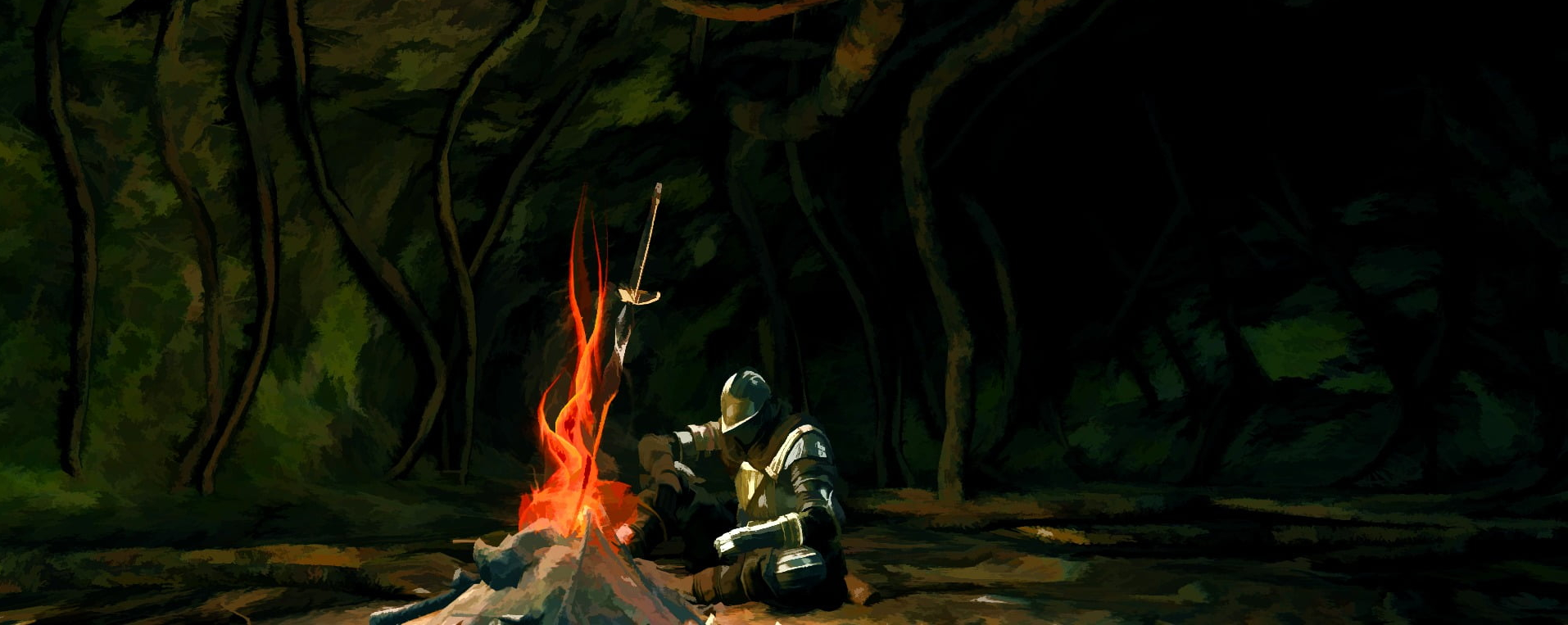The long-spanning and always-growing lineup of mainline games from developer FromSoft is one that is revered and only seems to become more and more legendary as the years roll on. That growth has gotten to a point where even plenty of casual gamers can say they’ve at least heard of it. The series is very special to me as well, so I love having the chance to talk about it again.
I was a person who grew up very scared of failure, even just the concept of it. It wasn’t much of a problem in everyday life, but it would rear its ugly head whenever a time came that required me to make meaningful decisions for my life that came with consequences. I would be paralyzed over the possibility of a choice leading me to setback – to failure.
Dark Souls taught me that it’s okay to fail.
How does it do that? There is of course the notable difficulty the series and FromSoft games as a whole share as a core, built-in feature. I won’t talk about it in detail as there are others who’ve done so already. But of course, the whole mythos surrounding the games and their difficulty can feed into itself. On one hand, it could psyche you out from trying the games at all (hopefully you don’t let its reputation get to you and still try the games out – they’re worth a shot!). On the other hand, the prestige of the games becomes almost reassuring when you try and try, only to fail. “It’s okay. It’s Dark Souls. We’re hard games, and there’s a reason we’re notorious,” the games seem to say.

More comfort and purpose is given to your struggle as the player when you fully engage with the difficulty and bullshit of it all. You end up dying so many times you probably have lost count, whether to your own mistakes or some utter bullshit (especially in Dark Souls 1). Every player has lost their souls before retrieving them at least once. Eventually it stops hurting because it happens so much. You learn to accept that dying is just part of the game. You got burnt to a crisp by a dragon on a bridge that you seemingly can’t even run across – and you laugh it off in all its absurdity. Yep, that’s just Dark Souls, man. Shit just happens sometimes.

When I started running into my first real wall in Dark Souls and was becoming frustrated at myself, my friend reminded me: “It’s okay dude, it’s Dark Souls. It’s hard,” and it helped. It really did.
One other viscerally apparent way Dark Souls teaches you that failure is okay is with the bloodstain mechanic. When another player online dies somewhere in the game world, their death is marked by a bloodstain that they can see. And sometimes, these get shared by the game server for other people to see too in their own worlds. So, during any playthrough of your own game, you’ll run across numerous bloodstains throughout the worlds and levels you traverse on your own adventure. For extra fun, you can also choose any bloodstain and have it show a short replay of how that player died.
I laughed at many silly bloodstain replay deaths across my adventures, knowing and being okay with the fact that other players could laugh at mine too. All of us players shared in the schadenfreude, knowing that shit happens sometimes, and it happens to all of us.

For someone who is suffering, there can indeed be some comfort gained from watching others suffering in ways similar to you. I don’t mean to suggest that people are all sadists, though. Rather, knowing that someone has had to struggle through the same thing you’re struggling with makes you feel less alone. “It’s okay, you’re not the only one,” the game tells you. The ocean of bloodstains surrounding tough bosses can be menacing, but they are also an invitation. “Come join in our shared struggle.” And eventually you too can join in the shared triumph when you overcome the challenge.
Realizing it’s okay to fail is freeing.
Once I had that realization in Dark Souls, the game became much more enjoyable and I eventually beat it. I certainly died a lot throughout the game – failing over and over. But, that just comes with the territory.
I would be lying if I said that this lesson has carried over into real life for me perfectly, and that I have everything in my life sorted out now that I’ve overcome that primal fear of failure. But I think Dark Souls has helped ease that transition for me as I continue to work on it for the future. Even now the anxiety over knowing that I could potentially mess something up and fail can take over. Sometimes I get unlucky with what life throws at me, but other times it’s a result of my own mistakes and decision-making. That’s just Dark Souls, and that’s just life sometimes. But hey, if I can beat Dark Souls, I can overcome my academic obstacles too, right?



Your post captured a huge part of why I love this game and its sequels, though I might not have known it before. The co-op aspect of the games, both active in the summoning mechanic and passive in the bloodstains and messages, are so significant, even though the main focus is a single-player, campaign-like journey through the narrative. An interesting question then arises: would Dark Souls be the same game if it had an “easy mode” or changeable difficulty, as some in the industry have proposed and argued? Should the difficulty be considered as a barrier to entry for newer players? On a related tangent, the games typically also pose some form of interpretive difficulty with their largely environmental storytelling and their emphasis on withholding lore details from the player; it’s interesting how the intersection of difficulties can give a game such a characteristic atmosphere!
Thanks for your comment! I’m glad you could relate to how I feel about the Souls series and why it’s so great. I think Dark Souls wouldn’t have received the attention (and perhaps notoriety) it did, had it had difficulty options.
I believe the emphasis on a single, universal “tough but fair” experience was a core reason for the game becoming the phenomenon it was. It helped lots of people discover that they actually could enjoy difficult games – and more importantly, beat them. It’s very possible that some of those people might not have ever realized the fact, had they not tried something like Dark Souls and stuck through it. While there are always people who set self-imposed challenges for games and stick with them, not everyone has that kind of self-discipline. This certainly was the case for me, haha! I’ve tried playing games with the difficulty turned up before, and when things got tough, I got tempted to turn the difficulty down and did so. Maybe the act of doing this lowered the satisfaction I would have otherwise gotten if I had stuck with the higher difficulty and managed to struggle through it. Unfortunately, I’ll never know for those games. But, the fact that Dark Souls had no difficulty options meant I had to just grit my teeth and carry on, and I surprised myself when I ended up loving the experience.
I think it’s okay for games to not be designed with everyone in mind, in the same way that a certain movie or song isn’t made for everyone to enjoy – as long as people aren’t withheld from at least getting to try them out, of course. After all, taste in art is personal, and genres exist for a reason. They’re as much an expression of the developer’s personal philosophies as paintings and books are for artists and authors, and it’s fine if they won’t resonate with every single person. That being said, it’s totally fine and a good thing for there to be games with difficulty options that allow players to better customize their experience. I think both kinds of games can and should exist, and it’s nice for people to pick the kind of game that they prefer or want to try out. And through that, they might end up discovering something about themselves they didn’t know before.
I really love your reflections on the game! Instead of running into the technical analysis, you focused on your personal feelings about the game, which I would say is the most important part of any piece of artwork. I think making friends with failure is a lesson that everyone should learn, and I am glad that Dark Souls were able to teach you that. I also like your analysis on the bloodstain, and I am curious to see if there are any technical reasons behind such design!
I’m glad you enjoyed the post! 🙂 Writing about my personal experience was a lot of fun for sure. So, I don’t know the exact technical reasons behind the bloodstain mechanic, but I imagine that the developers had a similar intention with it as they did with the message system. I didn’t mention it in my post, but basically players can also leave short messages on the ground anywhere in the game using a set of pre-made phrases and words. It’s intended to let players naturally leave advice for an upcoming area. Similarly, I’m guessing the bloodstains were meant to serve as natural warnings for players who have just arrived in a new area, so that they can see where lots of people have died and can try to be more cautious. All these bloodstains and messages are anonymous, though, so you’ll never know the identity of the person who died or wrote the message.
It’s not directly related, but Miyazaki (the game’s director) had once said in an interview that he was inspired to design the summoning co-op mechanics of the game from a personal experience he once had. His car once got stuck in deep snow on a hill, and some strangers came by to help push his car out. Those people then immediately left without a word. So, while this experience directly inspired the co-op summoning system, I imagine this philosophy leaked over into the creation of the entirely anonymous nature of the messages and bloodstains as well.
I find your comfort in failure and feelings of freedom in failure really interesting, particularly because this was not my experience with Dark Souls at all. For some context, I downloaded Dark Souls for free with PlayStation+, and I really liked the look of the game. However, after playing it for a few hours, and getting absolutely nowhere, I gave up and deleted the game. This leads me to the question, are you more willing to fail and try again/more comfortable in failure if you paid for the game? I assume the answer would be yes, you had to put something into the game so you want to get something out of it.
That’s a fair point! I think the fact that I had put money into the game already certainly was a factor. Knowing that I had already invested something definitely helped motivate me to try and get more out of the experience early on when I was still having some trouble learning the reins. I did buy into the central gameplay loop of Dark Souls pretty quickly, though, so I wouldn’t say it was the main driving motivator for the majority of the game. But, I think your point definitely makes sense and probably was an initial factor for me.
I really appreciate you sharing your outlook on Dark Souls, I think that is such an important lesson to learn and one we can get from so many games. I also used to be scared of failing; hence why so many of my games are left unfinished, but there are times I wish I didn’t let it stop me as a kid. I wonder what more games I could’ve beaten, but I didn’t play too many games with such goals as a kid. My failing was at games like Legend of Zelda or Pokemon even, back when they were harder. Yet, I found an undeniable love for these games as well, as I feel they shaped me so much. So many games hold lessons within them that we don’t realize, but they shape us so much.
Totally agree. It’s cool how games can teach us lessons like this in such a unique way. And, even games that belong to wildly different genres, like Zelda or Pokemon, can do the same. It’s such a great aspect of this interactive medium that makes it so interesting! Feels like like games designed explicitly for education purposes might still need some work though, haha. Thank you for the comment 🙂